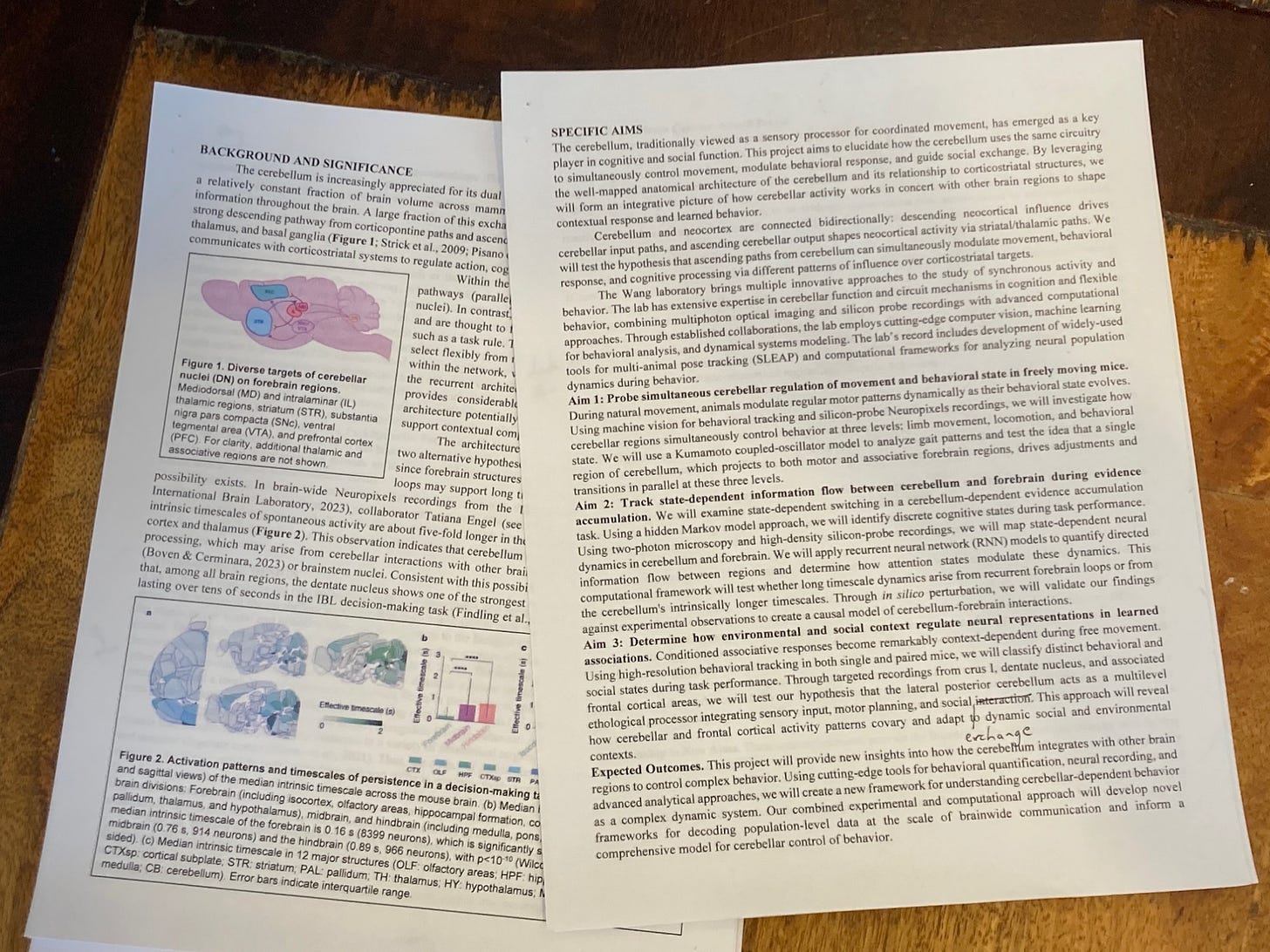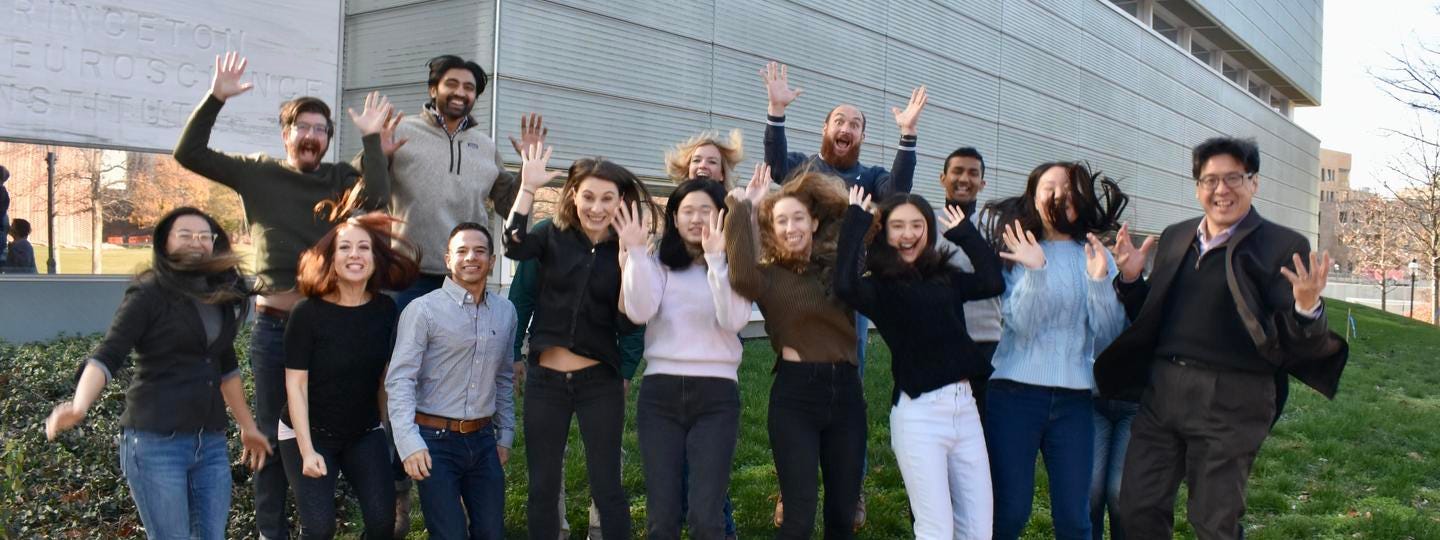For U.S. science, a small step back from the brink
And an evidence-based path for you to help on Friday.
Today, a federal judge issued a nationwide preliminary injunction (decision and court docket) blocking the Trump Administration's extralegal attempt to unilaterally cut the NIH indirect cost rate. It's a win! The lawsuits were led by the state of Massachusetts, the American Association of Medical Colleges, and the American Association of Universities. They were joined by many health and educational organizations. We should be grateful to all of them.
This doesn't solve the problem of thousands of NIH grants being delayed or blocked because of political review. Nor does it solve the threat of cuts to research in the future. But combined with another court order regarding the illegality of mass firings of "probationary" workers, including at NSF and NOAA, it's a start.
Now we will see if the rule of law holds. Will the Administration follow these court orders? To emphasize to those of you who are new to civic matters: if they defy the orders, or if the many illegal actions of the last month are allowed to stand, it's a fundamental change to the U.S. system of Constitutional democracy - and toward authoritarian rule.
To combat this backsliding, courts will play a key role. And maybe, so will you.
Your Next Step: Stand Up for Science, Friday at noon. Nationwide (and many cities nationwide)
Despite current attacks on democracy, many institutions are not rising to the moment. Republicans are not standing up for the rule of law. Democrats are color-coordinating their outfits and holding up cute signs during a Presidential address, and talking about the 2026 election. Businesses are going along for the ride. Nonprofits are having difficulty overcoming their fear.
As we saw today, some courts are rising to the occasion. But the Supreme Court may not: today’s decision was the closest imaginable, 5-4.
Which gets us to the topic of individual action.
3.5 percent is enough
An interesting research result highlights the power of mass protest. In a survey of hundreds of nonviolent protests, Erica Chenoweth and Maria J. Stephan report that when at least 3.5 percent of the population participate, a protest is highly likely to achieve its aim.
For the U.S. to reach that threshold, different sectors of society will have to join forces.
Supporters of science will be a critical component. This Friday will be Stand Up For Science rally events nationwide. They will be fun...and practical!
Based on neuroscience and experience, a key component of effective action is visibility. If you can get to Washington, D.C., go there. If you can't, find a rally near you.
Here in New Jersey, we’ll gather at the State House in Trenton. Speakers will include former physicist, Congressman and former AAAS President Rush Holt, as well as people from colleges and universities throughout New Jersey. I'll speak last, and talk about effective political action.
At the rally we will convert your knowledge to practical actions:
organizing to call, visit, and petition state and federal legislators; and
how to approach your community organization, professional society or school.
Learn how to give them all a good hard push!
In the meantime, here’s some information for your messaging about NIH:
a University of Pennsylvania White Paper briefing and slides.
Drug development, cancer treatments, and basic knowledge are powered mainly by federal support.
Science funding produces jobs.
Science is a quintessential activity for the common good. That's why, like other institutions, it's under attack.
What the attack on science looks like, up close
I will end today with a personal story of how these attacks are playing out.
Today, I did something routine in the life of an American biomedical scientist: I submitted a grant to the NIH to support my research.
My research team works on how the brain processes sensory experience. The work has implications for both learning and development, including in conditions like autism. Our work is basic research, but it could also lead to therapies and treatments to improve people’s lives. Knowledge like this is cumulative and requires expertise. My research group is a machine that uses money to produce research articles and scientists. We’re just one of thousands of such groups across the nation, all contributing to American science.
The first few pages of the grant proposal look like this:
We hope to follow through on exciting threads, including a possible link between autism spectrum disorder and sensation/movement. This proposal lists recent publications, as well as new and exciting results. This grant has helped support my work for 23 years.
Proposals like this get reviewed through a rigorous process to make sure they are scientifically sound and to make sure the money is properly spent. It is an orderly process overseen by career civil servants with a commitment to doing good work. But several steps in that process have come under hostile attack.
To evaluate the grant, a committee called a “study section” reviews it for significance and feasibility. If it passes (it’s hard - most proposals don’t pass), NIH officials recommend whether it should be funded to another committee, called Council. Study sections and Council are made up of working scientists.
The Administration is blocking all steps of this process. They don’t have the votes to change the process in Congress. Instead they’re doing it via executive orders, DOGE interference, and OMB orders. All appear to be at least partly illegal. It’s consistent with ways they have destroyed expertise across the federal government: the National Science Foundation (NSF), the National Oceanic and Atmospheric Administration (NOAA), the Centers for Disease Control (CDC), and the Food and Drug Administration (FDA). Over and over again, expertise that took decades to build up is being kicked to the curb.
So it was an odd feeling to submit the grant. We’re doing some of the best work of my career. Yet I have no idea when or even whether it will be reviewed.
In the meantime, we’ll continue doing good work. See you Friday!





I’ll be at the Philly rally Friday. Spent most of last week and this week speaking to likely beneficiaries of indirect costs who had NO IDEA that they could be supported by NIH grants. Zero. Almost 65% at UPenn.